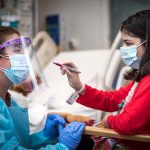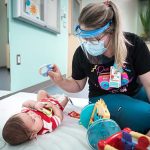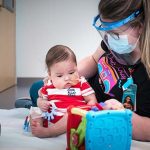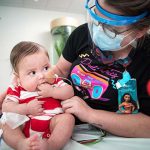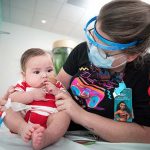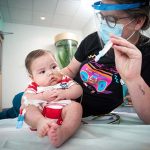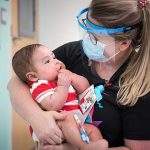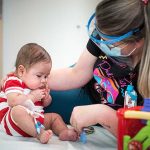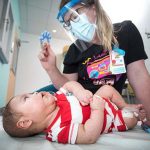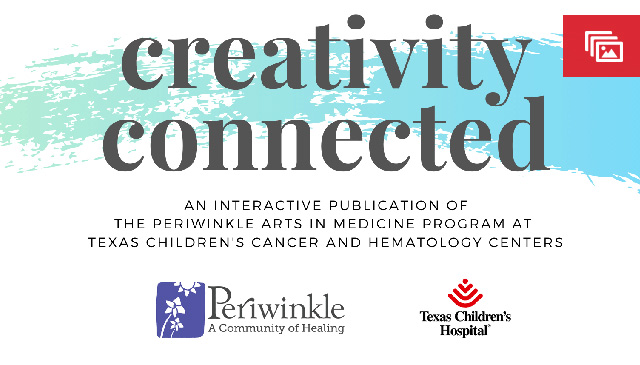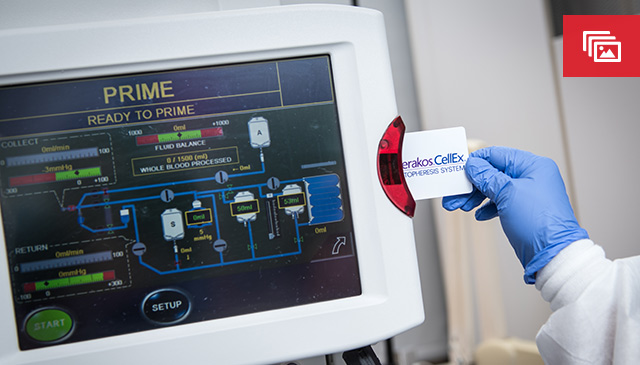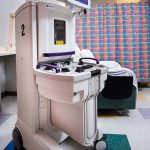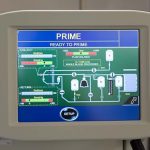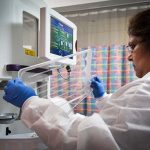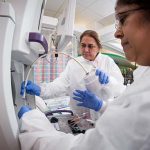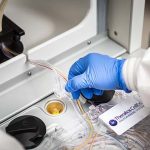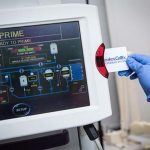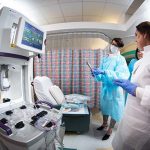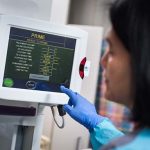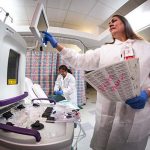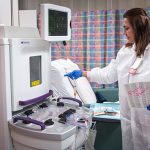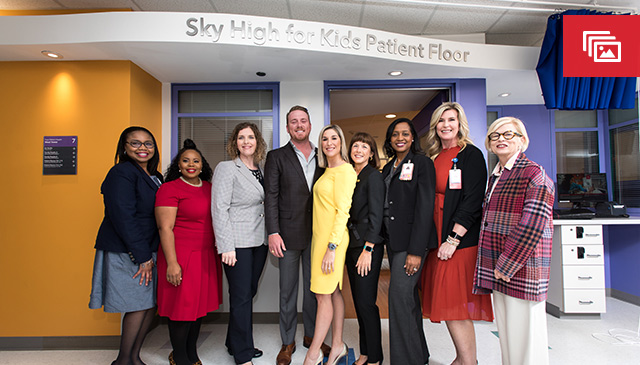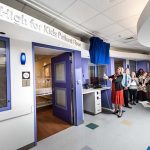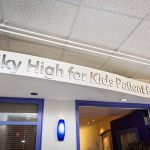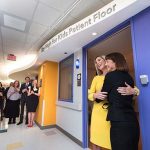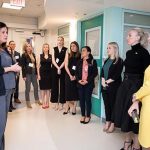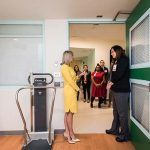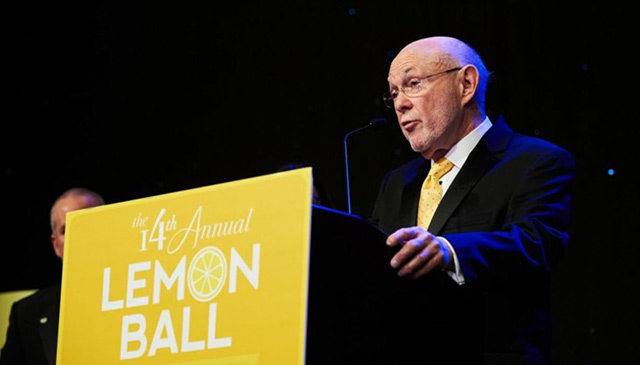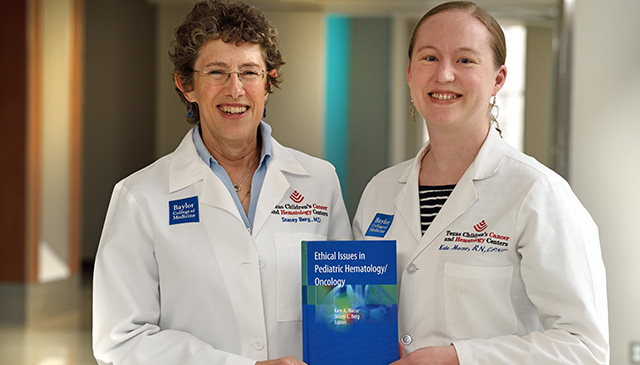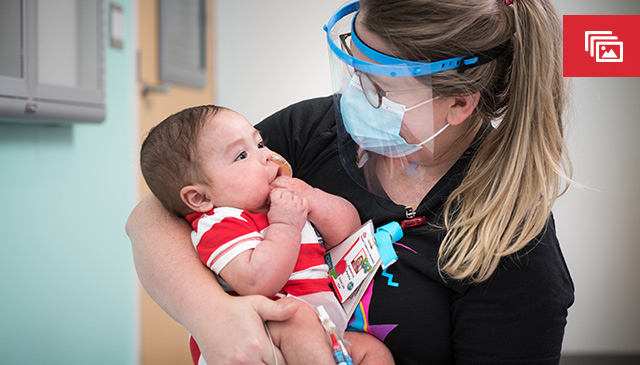
The Child Life team at Texas Children’s has a pretty special job. Through a variety of educational and therapeutic interventions, they strive to alleviate stress and anxiety, while promoting positive coping skills for patients and families during their time at the hospital.
Made up of a variety of teammates – including child life specialist, art, music and animal-assisted therapists along with media professionals and activity, school, library and gaming coordinators – the department focuses on the psychosocial needs of children while collaborating with parents and other health care staff.
The need for such services and expertise has grown exponentially during the pandemic with anxiety and stress among patients and parents at a peak. Texas Children’s Child Life team has stepped in to do their part in calming these new nerves and making patients’ experiences at the hospital the best they can be during these unprecedented times.
“We are glad we are able to be in the room to support patients and families during this challenging time,” said Diane Kaulen, manager of the Texas Child Life Department. “We are there in PPE (personal protective equipment) helping support patients and families through all the emotions that come with illness and hospitalization. Our team is happy to still be working with them.”
The power of play
One way child life team members help children express and process difficult emotions is through play, the power of which can be amazingly strong. Audrey McKim has seen play work wonders time and time again during her tenure as an activity coordinator with Texas Children’s Cancer and Hematology Centers.
“As a child life team we make it a priority to bring patients together through intentional programming anchored by play,” McKim said. “We understand the significance of creating connections and building a community among people who are mere doors apart from each other but have the opportunity to share so much more than a diagnosis.”
Creating these connections during the pandemic has been challenging, but not impossible. McKim said an average day for her begins with huddles in the morning and looks over the census. Based on all the things she and her colleagues know about their patients and their needs, interests, strengths and diversity, they create a new daily challenge game.
Cup stacking and collapsing, ping pong challenge, Play Doh sentences, speed Spot-It, balancing building and trivia are just a few of the games the child life team play with patients in their rooms. To ignite competition among the other patients on the floor, scores reflecting speed and number of questions answered correctly are posted on a giant “Leader Board.”
“Imagine the show ‘Minute to Win It’ happening every day inside patient rooms,” McKim said. “We didn’t even need prizes, bragging rights and Leader Board ranking was enough.
McKim and members of her team also have incorporated photo projects into their repertoire and utilized creative themes burgeoning from social media. They have marked holidays with events like timed St. Patrick’s Day gold coin hunts, Mother’s Day interviews and photos from patient beds, individual egg hunts in rooms, Earth Day and super hero day art.
“What we found is how much patients started looking forward to visits from someone bringing something purposeful and fun that tied people and days together,” McKim said. “In the absence of so much, we have discovered a beauty in the challenge of creating and sustaining community through play all while staying apart from each other.”
The COVID effect
Chandler Townsend, a child life specialist in the Emergency Center, said she quickly learned that COVID-19 has more than just medical side effects.
“A hospitalized child within this pandemic is not just experiencing stressors related to hospitalization,” she said. “Our tiny heroes and their caregivers are now walking through our doors with a whole new set of external stressors, already altered from their baseline.”
Children miss their communities of classmates and playdates. Parents find themselves on a seesaw, balancing their work as professionals and as nurturers. The disappointment of a favorite park being closed, a postponed celebration or a canceled trip to see grandparents is felt by all. And, on top of everything, a visit to the hospital.
It takes extra, special intentionality to address kiddos’ fears and foster resilience, and Townsend and colleagues are doing just that and more. They are engaging family members in supportive conversation, recognizing that due to visitation protocols, they may not have their spouse’s hand to squeeze and may benefit from that extra check in.
They are allowing opportunities for control/mastery over a child’s day through procedural preparation, the dissemination of honest information, validating emotions, re-shaping perspectives, being a supportive presence and creating chances for control and facilitating play.
“Child Life is striving to adapt creatively while still keeping patient-and family-centered care at the center of our minds,” Townsend said. “I’ve been so encouraged by my coworkers and their drive to allow kids to be kids.”


